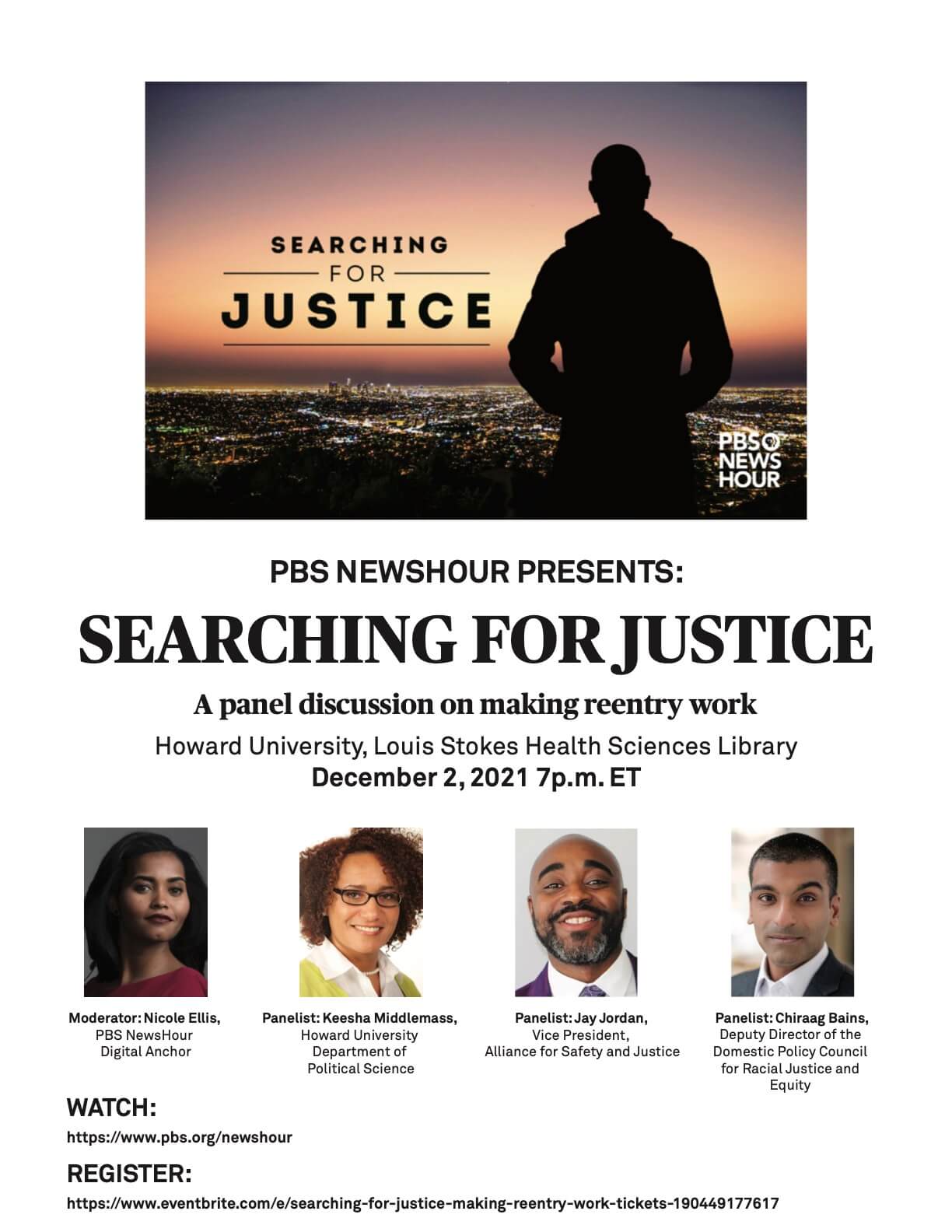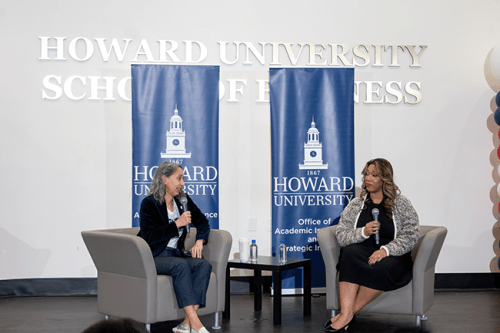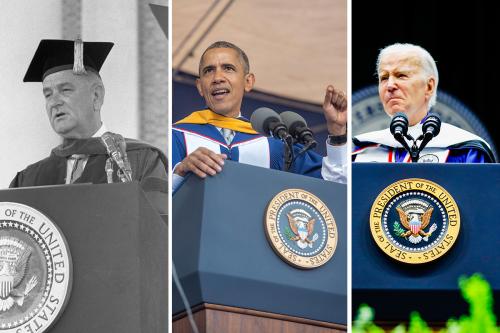 WASHINGTON – Howard University Department of Political Science professor Keesha Middlemass,Ph.D, will join PBS NewsHour for an hour-long discussion on life after prison, the challenges of the reentry process for returning citizens, and why it matters. A part of PBS NewsHour’s ongoing “Searching for Justice” coverage, the event will be livestreamed on the PBS NewsHour website from Louis Stokes Health Sciences Library on December 2 at 7 p.m.
WASHINGTON – Howard University Department of Political Science professor Keesha Middlemass,Ph.D, will join PBS NewsHour for an hour-long discussion on life after prison, the challenges of the reentry process for returning citizens, and why it matters. A part of PBS NewsHour’s ongoing “Searching for Justice” coverage, the event will be livestreamed on the PBS NewsHour website from Louis Stokes Health Sciences Library on December 2 at 7 p.m.
“The College of Arts and Sciences at Howard University has some of the nation’s foremost researchers and thought leaders regarding the need for fundamental change in our criminal justice system,” said Rubin Patterson, dean of Howard University College of Arts and Science. “We are very appreciative of our political science colleagues who will help inform the nation on December 2 via the PBS NewsHour about wrenching challenges faced by citizens who are reentering local communities all across the country. This thoughtful conversation will not only discuss the problem, but it will also communicate solutions.”
Every year, over 600,000 people leave state and federal prisons in the United States. Many of those individuals find that even though they have served their time, they still are not free, often facing barriers to housing, food, employment and more. Their criminal histories follow them long into the future, making staying out of jail or prison difficult.
The rate at which formerly incarcerated individuals return to prison is stubbornly high. Within three years of release, roughly 40 percent of those released are reincarcerated. Advocates argue that when formerly incarcerated adults are able to successfully reenter, society as a whole is better off.
Moderated by PBS NewsHour’s digital anchor, Nicole Ellis, panelists include:
- Keesha Middlemass, Ph.D., associate professor, Department of Political Science, Howard University;
- Jay Jordan, vice president of Alliance for Safety and Justice; and
- Chiraag Bains, deputy assistant to the president and deputy director of the Domestic Policy Council for Racial Justice and Equity at the White House.
Middlemass focuses on the intersection of race, public policies and lived experiences with the criminal justice system. She is the author of “Convicted & Condemned: The Politics and Policies of Prisoner Reentry” (New York University Press, 2017).
“Reentering society after serving time in prison is a challenging process because each individual must create a life for themselves by addressing several interrelated issues simultaneously and doing so with little, if any, support while navigating public policies that hinder their reentry efforts,” said Middlemass.
Jay Jordan is a nationally recognized public policy expert, political campaign specialist and organizer. He currently serves both as vice president of the Alliance for Safety and Justice, a multistate organization working to replace over-incarceration with more effective public safety solutions rooted in crime prevention, community health, rehabilitation and support for crime victims, and as national director of #TimeDone, a campaign to end restrictions and barriers on people living with past convictions.
Jordan will speak about his personal experiences as a formerly incarcerated individual and reentering society
Chiraag Bains supervises DPC’s democracy and voting rights, criminal justice, disability, Indigenous affairs, racial wealth gap, and broad equity portfolios for the White House. He will discuss the current administration’s priorities where reentry is concerned.
Nicole Ellis and the panelists will take audience questions.
To register for the event, visit https://www.eventbrite.com/e/searching-for-justice-making-reentry-work-tickets-190449177617.
The event will also be livestreamed at https://www.pbs.org/newshour.
###
About Howard University
Founded in 1867, Howard University is a private, research university that is comprised of 14 schools and colleges. Students pursue more than 140 programs of study leading to undergraduate, graduate and professional degrees. The University operates with a commitment to Excellence in Truth and Service and has produced one Schwarzman Scholar, three Marshall Scholars, four Rhodes Scholars, 12 Truman Scholars, 25 Pickering Fellows and more than 165 Fulbright recipients. Howard also produces more on-campus African American Ph.D. recipients than any other university in the United States. For more information on Howard University, visit www.howard.edu.
Media Contact: Aaliyah Butler; aaliyah.butler@howard.edu




